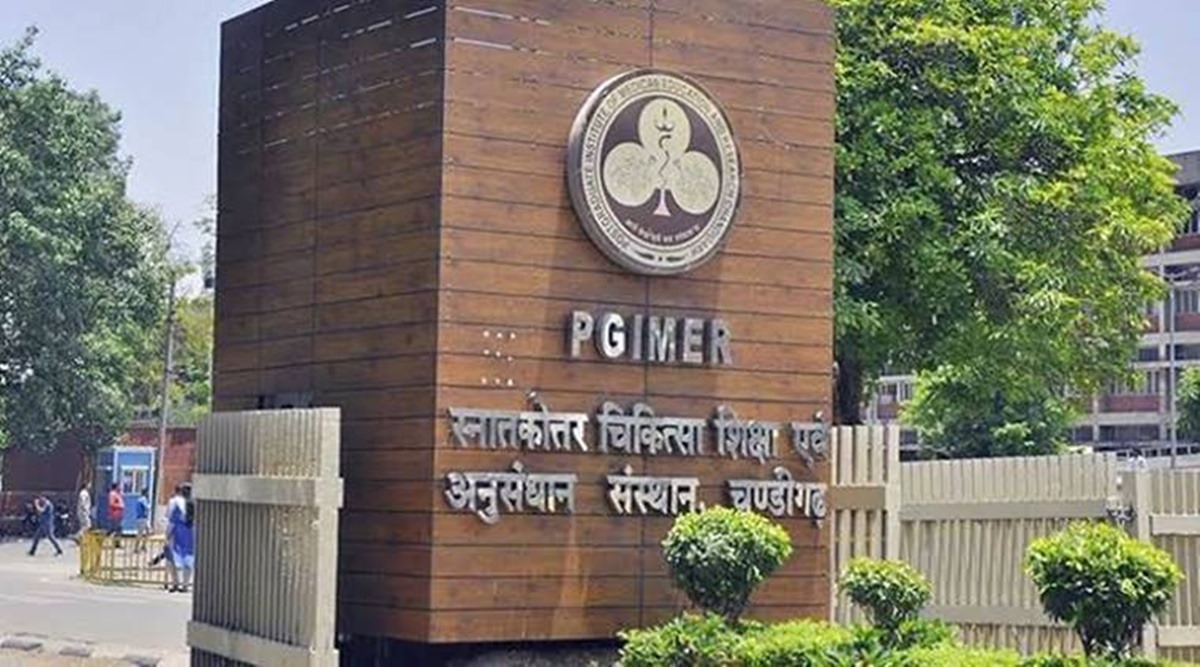 PGIMER stated that this case has been sent for publication.
PGIMER stated that this case has been sent for publication.In a first of its kind case, a critically ill patient of cardiogenic shock due to Acute Coronary Syndrome with multiple comorbidities was successfully treated at the Advanced Cardiac Centre, at PGIMER.
The patient was handled by Professor Yash Paul Sharma, Dr Prashant, Senior resident Dr Pruthvi and supporting staff of the cath lab.
“A 52-year-old woman presented with Acute coronary syndrome, anterior wall myocardial infarction not thrombolysed with delayed presentation in cardiogenic shock, severe left ventricular dysfunction, acute mitral regurgitation, acute kidney injury, acute pulmonary edema, severe sepsis, diabetes, hypertension and was managed with invasive mechanical ventilatory support with novel, precise, strategic approach of treating the co-morbidities and concurrently with appropriately timed angiography followed by angioplasty with stenting,” stated details given by PGI.
It was further stated that her angiogram showed 95 per cent occluded left anterior descending artery, chronic totally occluded left circumflex artery with retrograde collaterals and chronic total occlusion of right coronary artery with retrograde and bridging collaterals.
“Her acute kidney injury has improved along with her haemoglobin,” added the statement.
Doctors said that ejection fraction of the heart also improved after angioplasty and other supportive cardioprotective drugs like oral and intravenous iron.
The patient was screened for Covid-19 in a strategic way, with testing by RT PCR done at the time of admission and also before angiography.
PGIMER stated that this case has been sent for publication.
“On extensive search in literature no such complicated case with cardiogenic shock due to acute coronary syndrome with multiple comorbidities was found. In this pandemic in the interest of patients, we emphasise that patients with chest pain should not delay seeking medical care as it will cause increased myocardial damage that will lead to hemodynamic disturbance and adverse outcomes,” said the statement issued by PGI.
“Upon tele-video consultation follow up after four weeks, the patient is doing fine and is able to do regular activities and in NYHA class II. With this strategic and innovative approach, the PGI Cardiology department has achieved lower mortality rates in cases of cardiogenic shock due to heart failure and acute coronary syndrome,” added the statement.